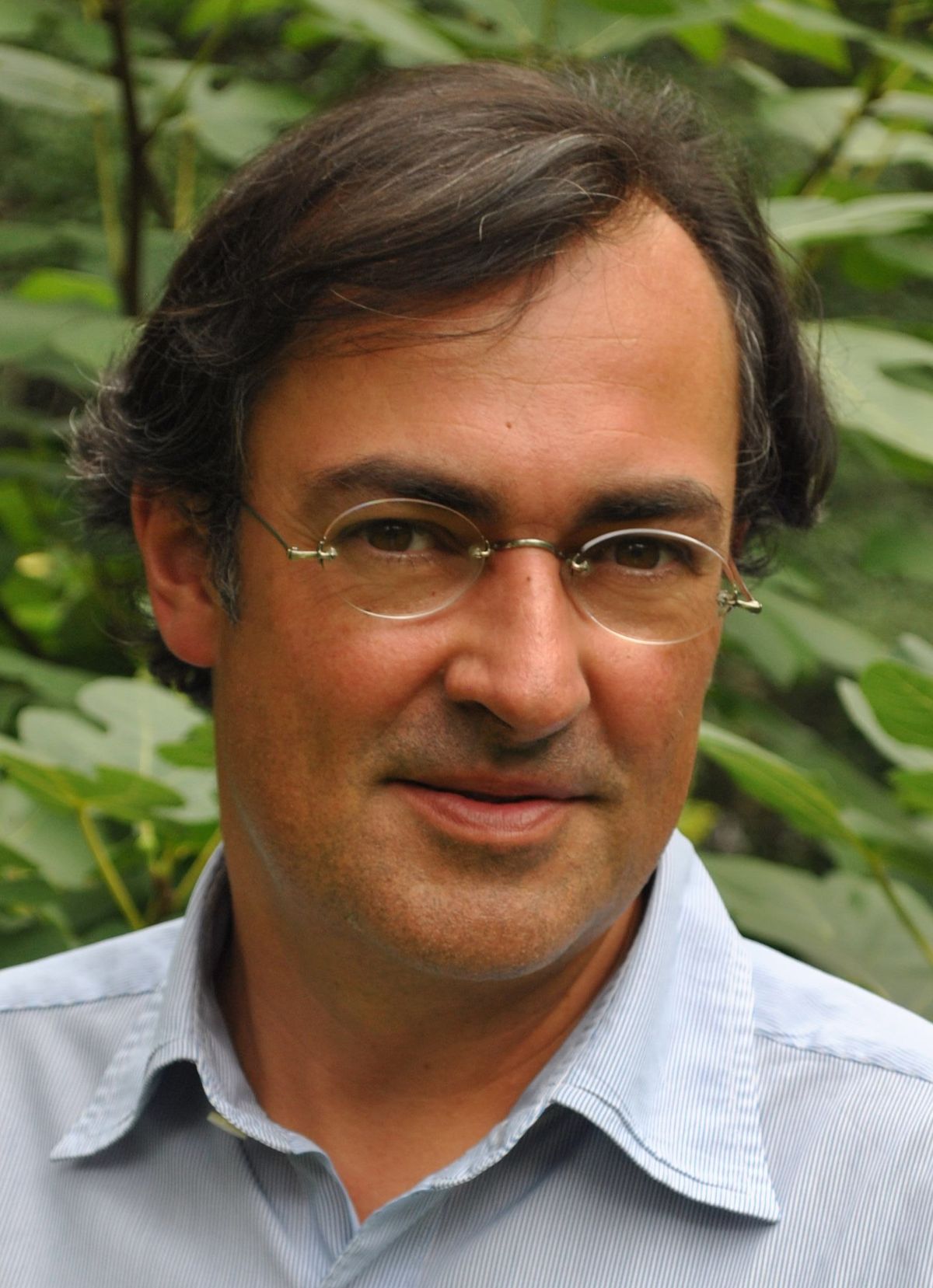Itt a legfrissebb közvélemény-kutatás: így áll most a Fidesz és a Tisza Párt

Továbbra is zajlik a közvélemény-kutatások „háborúja”, utánajártunk, mekkora a valós különbség a Fidesz és a Tisza között.

With the challenges being labelled in abstract terms, the natural solution becomes supranational under the mantra that only one-size-fit-all solution and large-scale global organizations could “save the planet” – Renaud Beauchard pointed out in a conversation with Lénárd Sándor.

The international financial institutions have been amongst the major drivers of economic globalization for many decades. Even though their policies promote development as well as the eradication of poverty, they many times ended up having opposite effects than what public interests would require. What is your experience in this area?
Well, I have been, so to speak, in the belly of the beast, but given my quality of a rather precarious consultant, I have always had the necessary distance and hindsight to try to capture the true nature of the Official Development Assistance (ODA) industry.

Before we go further, I would rephrase your sentence. Institutions like the IFIs and development agencies promote poverty reduction through development, which is itself a very problematic concept. For my part, I would adopt the definition of development given by Gilbert Rist, in his book, Development, From Western Origins to Global Faith. Rist defines “Development” as a set of practices, sometimes appearing to conflict with one another, which require – for the reproduction of society – the general transformation and destruction of the natural environment and of social relations. Its aim is to increase the production of commodities (goods and services) geared, by way of exchange, to effective demand.
If you take that definition, which corresponds very well to what I have observed, particularly in my years consulting for the IFIs and US donors, the fact that 3.4 million people were physically or economically displaced by WB funded projects between 2004 and 2013 is not an accident, but the realization of the very essence of what the Development agencies do. One must keep in mind that ODA, particularly the kind of ODA led by IFIs has for paramount objective the organization of a dependency of developing world population to a unique, global, anonymous market. To that end, ODA works to create a world where
foreign direct investors have an unfettered, unimpeded access
to any country’s market.

Economic globalization is also driven by the international regulation of investments. You wrote a book on this entitled “L'assujettissement des nations, Controverses autour du règlement des différends entre Etats et investisseurs”. In this book you examined the international investment treaties along with their dispute settlement systems from a critical point of view. What were your major conclusions?
My conclusion is very simple. Originally, the whole ISDS system was designed to protect investment against expropriation, usually violent waves of expropriation in former colonies, such as the nationalizations in Indonesia or the egregious looting of foreign assets in Zaïre under Mobutu in what was called Zaireanization. However, it has morphed into something different in the 1990s. The new logic, initiated by a landmark award rendered in 1990 (AAPL v. Sri Lanka) by a panel of ICSID arbitrators, was to create a sanctuary for investors rights.
It is not about protection investors’ property, it is meant to warrant an unfettered circulation of mobile capital,
which is essential in a financialized global economy. To this end, bilateral investment treaties (BITs) have been negotiated in industrial quantities in which the standards of treatment of foreign investors have been rewritten and fine-tuned to give investors methods of intimidation against government (for example, the fair and equitable standard has given rise to a standard of violation of legitimate expectations of the foreign investor, which itself has been interpreted by arbitrators as giving the investors a right to expect a “reasonable return rate on investment”). The notions of taking or expropriation (direct, indirect and creeping) have been extended to include everything that has the potential to decrease the margin of profit of the investor such as minimum wage laws, environmental or social regulation as we have seen this through many examples. Recently, there have even been many discussions among lawyers specialized in ISDS about the possibility to sue States over the measures adopted by national government to prevent the spread of Covid 19. In other words,
the disputes settlement mechanism of investment treaties have become a form of institutionalized racket for multinational corporations
at the expense of public interest regulation of sovereign states.
What do you mean by “financialization” of the world economy?
I often refer to the book “The Long Twentieth Century” by Giovanni Arrighi, in which Arrighi explained that the “financialization” of the global economy since the 1970s follows the same pattern that was observed in the previous centers of the World Economy :Genoa, The United Provinces, the UK, and now the United States. After a spectacular period of capital accumulation based on the dominance of its manufacturing sector, which providing the United States with an unprecedented military dominance, the US experienced a profitability crisis in the late 1960s when its main customers became its main rivals, while it was embroiled in a quagmire in Vietnam. However,
instead of confronting its productivity decline, the U.S. withdrew to finance,
which means that they specialized in recycling the trade and capital surpluses generated by the rest of the planet. That shift initiated a phase of unprecedented financial expansion, which culminated into the 2008-09 financial crises.
But one thing we tend to forget is that a financialized economy does not simply mean the dominance of the FIRE sector (Finance, Insurance, Real Estate) in the economy, but, as David Graeber put it, the transformation of every single institution, including car manufacturers, universities, etc. into financial services. This generates a profound change of attitude toward the population of the financialized economy,
a population treated increasingly as a source of extraction and pushed into unsustainable levels of indebtment.
Look no further than that to understand why tuition fees in US universities have known an inflation of 1,424.23% between 1977 and 2021…
And the role of the “Washington Consensus” was to extend this concept to world economy…
Well, more accurately the “Washington Consensus” is the enforcement strategy of that grand bargain struck in the late 1970s between the United States and the rest of the world. It is designed to ensure that every single dollar of capital surplus generated on the planet is recycled in the US economy. That explains why the instrument of projection of US power on the global stage has changed as the world economy, led by the United-States, engaged in a phase of financial expansion, or financialization. As Arrighi put it, this period, characterized by the use on the part of the US and IFIs of more and more extortive methods, profoundly changed the nature of the relationship between the US and the rest of the world. The US ceased to be a hegemon,
which according to Gramsci’s formula, consists in a situation where the dominant group’s interest is also perceived by subordinate groups as serving a more general interest, to become an Empire, whose nature is to extract tributes.
In the process, the privileged seat of the projection of US power was no more the United Nations,
but the IMF and the World Bank whose paramount role is to perpetuate that period of financial expansion and make the world a world as flat as possible for mobile capital.
How would you reform the international financial institutions?
The last thing we want right now is to further extend the reach of financial institutions like the World Bank and to trust them with the promotion of human rights or “saving the planet” for example. In my view, what we need is the opposite.
We need to shrink the reach of these organizations, to narrowly define their functions to fulfil a very specific purpose,
such as preventing the development of unsustainable imbalances in the world economy that may ultimately threaten world peace. And the same is true of the Frankenstein creature of the global economy that are the transnational corporations. In the period of shallow globalization – as opposed to the deep globalization in which we live since the late 1970s – IFIs had very specific mandates. For example, the International Bank of Reconstruction and Development (the World Bank) was an infrastructure Bank created essentially to reconstruct Western Europe’s industrial capacity. With the period of financial expansion that started in the 1970s, these institutions have become the enforcer of the alliance sealed at the end of the 1970s between the United States government and the network of multinational corporations (MNCs). Giving additional mandates to these institutions, and to MNCs, as is advocated under the reformulation of capitalism from a shareholder capitalism to “stakeholder capitalism” or Economic, Social and Governance, will not make these institutions more “socially conscious”, or more “equitable”. It is, as Vivek Ramaswamy put it in a recent book, Woke Inc., Inside Corporate America’s Social Justice Scam, the surest recipe for a turbo-charged capitalism, a capitalism which values invade all the spheres of human existence. In other words, Stakeholder capitalism does not warrant that capitalism will become virtuous. It will strengthen its natural tendency to become a “total social fact”, as Jean-Claude Michéa put it.
You just made an intriguing connection between “wokeism” and the global economy. Can you expand further on that connection?
Thank you for letting me develop this aspect. I think that what was political correctness, which has morphed into an increasingly strident form of grievance politics named wokeism, has an intimate relation with the evolution of the United States from a hegemon into an Empire.
Going back to Arrighi, he identified three periods that all the centers of the world economy have known. First, they experience a profitability crisis, which Arrighi calls a crisis of signal of the transition of the center of the world economy to a new center. For the US century, that crisis occurred in the 60s and 70s. Then, like their predecessors such as the UK, the United-States have known a “belle époque,” comparable to the Edwardian era, after the US specialized in finance during what Arrighi called the monetary counter-revolution. This period corresponded to the 1980s, 1990s and the 2000s until the real estate market burst in 2007-2008 inaugurating the Great Recession. At that moment, the United-States entered the terminal crisis of the US century. This last crisis completes the process of transition of the center of the world economy to a new site (pointing in the Eastern direction). But as in prior periods of transitions, such as the one from Genoa to the United Provinces and the one from the United Provinces to the UK, and later the one from the UK to the US, the former hegemon turned Empire is trying to resist, thereby increasing the risk of global tensions. One particularly interesting manifestation of this resistance is the increasingly moral tone of US foreign policy. The moral self-righteousness of US diplomacy mirrors on the world stage the strident form of moral philosophy named wokeism that emanated from US campuses and has spread to all the institutions (government, supranational organizations, MNCs, media, entertainment industry, non-profit organizations etc.) inhabited by what we can label a professional managerial class, a class characterized by its role in managing and shaping the global economy. Forming the heart of US soft power, that philosophy has now invaded most of the world. It is now so widespread that we can even say that it is a new form of sociability within the world elites, which can be named wokeness.
Put simply, wokeness is the form of sociability of a kind of imperial clerisy obsessed by the preservation of its status and sensing that it can no longer manufacture the consent of the masses to its technocratic project without an increased recourse to coercive and intimidating methods.
Hence the obsession with censorship.
Challenged from abroad by the ascent of a formidable foe with China and from within by the scourges of unemployment, decreasing standards of life and a diffuse spiritual crisis that affect the populations of the developed world populations, that clerisy now claims its title to govern more on the basis of a moral expertise than a technical one. It is particularly true of the diplomatic elite, in which Christopher Lasch had discerned the vanguard of a kind of elite in secession from the country as early as in the late 19th century, when the new kind of internationalist elite organized around William McKinley, Teddy Roosevelt and Henry Cabot Lodge triumphed over the old regional elites. The project of giving the American Republic a world status by taking part in the banquet of Empires profoundly altered the balance of power within America’s upper bourgeoisie. From that moment, what would increasingly characterize membership to the elite became a passion for affairs of the world, the acquisition of cosmopolitan tastes, which meant, at the time, European tastes. It's the foundational stone of what would become grievance politics, and it’s not an accident if that fault line between a global class and a country deemed irredeemably backward, provincial and narrow minded reemerged in a much more strident and massive way when the United-States entered its imperial period. French theory provided the perfect theoretical foundation to the professional managerial class to protect their status by claiming to be moral-elects. This link was very well articulated by Matthew Crawford in a recent article in Unherd: “[v]ery simply: if the nation is fundamentally racist, sexist and homophobic, I owe it nothing. More than that, conscience demands that I repudiate it.” That was very clearly apparent in the US-China summit in Alaska in March last year between the US and the Chinese diplomacy.
The contrast was striking between US diplomats who were positioning themselves on a kind of moral high ground and the Chinese who practiced a brutal form of straight-talking. More and more, the US diplomats (and functionaries of international organizations), with their use of obfuscated jargon, of meaningless expressions such as The International Rules-Based Order (which is a code word for the US setting unilaterally the rules of the global economy and world affairs), look like the spokesmen of what Ramaswamy calls a “Woke Industrial-complex”, promoting a stakeholder capitalism, which is not the integration of human rights concerns into globalization, but a coup of the most powerful interests of the planet to establish themselves as moral arbiters. And paradoxically, the first casualty of that new moral order, as we have seen in the past two years, are constitutional guarantees that we took for granted.
Can you please expand on the pandemic?
We have witnessed in the past eighteen months a fundamental change resulting from a man-made virus. Essentially, the Covid-19 crisis is the perfect opportunity for a global governing class disempowered by risks it no longer controls, starting with the ecological crisis, to double down on technological hubris and to suppress doubts about its capacity to control those risks by claiming the moral high-ground. Under the effect of the multiplication of risks generated by the thermo-industrial civilization, all the mechanisms of solidarity born at the end of the 19th century with the treatment of labor accidents, followed by social insurances and by the institution of the Welfare State, are unable to address this new generation of risks, that range from the infinitesimally small (the latent effect of an accumulation of pollutions) and the major technological accident (such as a nuclear accident, oils spills on scales unseen before, zoonotic risks raised by how we cohabitate with animals, and now the very likely escape from a laboratory performing gain-of-function experiment of a lab-made virus). The novelty of these risks is that they are uninsurable, and the decision makers remain completely disempowered toward them. Their response is to find a shelter in a position of moral superiority on a wide range of issues by identifying abstract enemies (the antivaxxer, the white-supremacists, the free thinker etc.) whom they label as terrorists. So, in effect, these elites convinced themselves, and I just had the experience a few days ago while taking with an old friend, whom I had not seen for a very long time, that addressing the undeniable perils our world is facing, requires an embrace of authoritarianism.
One very important element of that strategy is to label the challenges the world is facing in the most abstract terms. You’ll notice that we don’t talk so much about combating pollutions, which could and should be addressed at the local level than about climate change. Or we don’t talk about regenerating the soils, which would require a fundamental change of our conception about farming by recreating a critical mass of farmers able to cultivate without pesticides.
We talk about combating climate change, which is not the cause, but the consequence of phenomena like pollutions and soil depletion.
With the challenges being labelled in abstract terms,
the natural solution becomes supranational under the mantra that only one-size-fit-all solutions
(such as MRNA vaccines or substituting animal meat with plant-based meat or lab-made meat) and large-scale global organizations could “save the planet”. In other words, to “eradicate the pandemic”, to “save the planet” or to address “structural racism”, etc. the only solution on the table is a global police state in the service of a social objective norm enunciated in the form of an abstract peril.